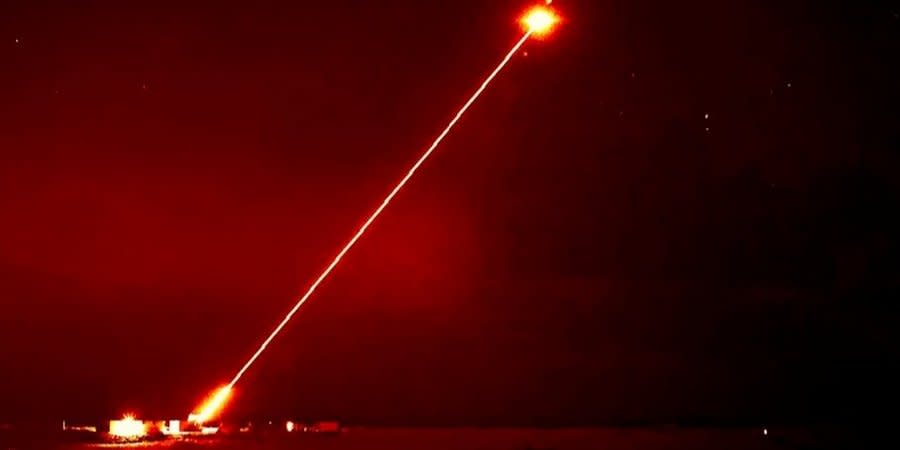Ukraine’s Air Force expresses interest in DragonFire laser weapon system

The effectiveness of laser weapons against Russian missiles and drones is still difficult to assess, but Ukraine needs any air defense system it can get, said Ilya Yevlash, Air Force spokesman, on the national TV on April 13.
"Any air defense systems, including experimental ones, are necessary to combat Russian missiles and drones launched at Ukraine," Yevlash said.
"However, it is still difficult to say how effective they are."
According to Air Force spokesperson, details on use of the new weapons should be kept secret.
"It is difficult to say whether Ukrainian military and political leadership has discussed this topic," the spokesman added.
Read also: Britain and France urge increased support from partners to aid Ukraine against Putin
"I think it's better to keep it a secret for now and not talk about these nuances. If this weapons will be used, we will report it."
British Defense Secretary Grant Shapps said that his country was considering providing Ukraine with a prototype of the DragonFire laser weapon to shoot down drones and missiles on April 12.
Shapps also noted that UK plans to add DragonFire to its arsenal by 2027, but is working to find out if country can send prototypes to Ukraine before then - even if they are not 100 percent complete.
Inside DragonFire
DragonFire, a laser weapon capable of neutralizing drones and missiles, operates invisibly and silently. Its light wavelength, roughly one micron, eludes human vision and aligns closely with the infrared light spectrum.
With the ability to travel at light speed and an undisclosed range, DragonFire can instantaneously heat a metal surface to 3000C (5400F), creating plasma and penetrating aircraft fuselages and weapon casings within seconds.
Read also: UK company upgrades Ukrainian drones to resist Russian EW
The weapon's development was influenced by recent conflicts in Israel and Ukraine, highlighting drones as a pivotal element of contemporary warfare. The UK Ministry of Defense notes DragonFire's capacity to intercept objects surpassing the speed of ballistic missiles.
A standout feature of laser weaponry is cost-efficiency, with each discharge estimated at merely $12. The British Navy is slated to be the initial recipient of the DragonFire system, followed by ground-based deployments.
Read also:
UK Foreign Secretary warns US Republicans about Putin's Ukraine propaganda
UK mulls over sending cutting-edge DragonFire laser to Ukraine for drone defense
We’re bringing the voice of Ukraine to the world. Support us with a one-time donation, or become a Patron!
Read the original article on The New Voice of Ukraine


